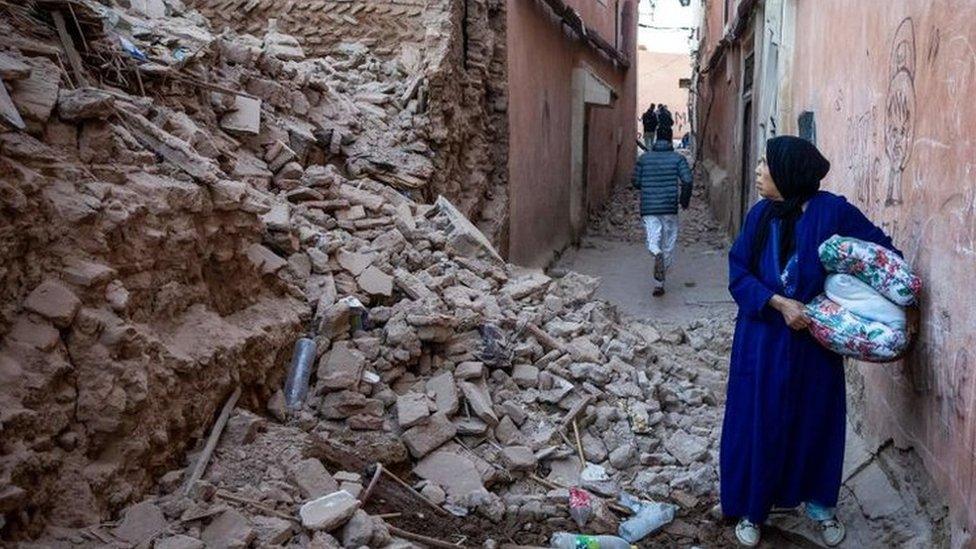Morocco earthquake: Mountain villages plunged into grief
- Published
Watch: Inside a remote mountain village devastated by quake
As we negotiated the final corner of the winding road and pulled up in the Moroccan mountain village of Moulay Brahim, it was immediately obvious we'd arrived in a community that had been plunged into grief by Friday night's deadly earthquake.
An elderly women staggered towards us, wailing, tears falling down her face, holding her head in her hands.
A few metres away, a group of young men were sobbing. They'd just discovered their friend was among the dead.
"There have been so many deaths today," one of the men told us.
"And our friend, he was crushed. We buried him today and he was so young."
Another man, Mohamed - who is helping to organise this makeshift response - revealed that 16 people had already been buried in this village alone, having been recovered from the rubble on Saturday. Another two victims will be laid to rest on Sunday.
"We've been working every minute since it happened. Non-stop since then," he said. "There are only about 10 people working here and we're trying to find people in the buildings. It's desperate."
Some hope was delivered a few moments later, as members of the Red Crescent arrived. But this is a disaster that needs a considerably bigger and co-ordinated response.
"We have nothing here," said Mohamed. "And we need everything. Food, medication, shelter."
This scene of destruction and despair is being played out across many parts of the High Atlas Mountains.
Our 90-minute zigzag drive from Marrakesh up to the remote mountainside was elongated by boulders and rocks that lined the route and obscured our path.
Broken and blocked roads have been seriously hampering the rescue effort. Teams have been fanning out from the main cities - notably Marrakesh - to try to reach the very worst-affected areas in the hope of pulling survivors from the rubble.
On our trip, a procession of ambulances raced past us, further into the unknown. Aerial footage has given us an idea of what awaits these emergency services, but it's still too early to gauge just how many people have lost their lives.
Heavy-lifting equipment will be needed if there are to be any miracles in the coming hours. Not just in Moulay Brahim, but in many places. Hands and hammers can only do so much.
Back in Marrakesh, thousands have been spending a second night in the open air. Roundabouts, car parks and a public square have been filled with figures of all ages wrapped in blankets.
Few appear to be sleeping, though - at least not soundly. Being in the relative safety of the outside doesn't quell the fear of what another tremor could do.
There's rubble in many streets of this historic city, although Marrakesh has fared better than the mountainous areas to the south-west.
A restaurant owner, Safa El Hakym, is trying to take in the damage.
"Thank God it's just the walls and materials that are gone," she says. "The most important things are not lost.
"And thank God we have the power of humanity in Morocco: we are all together and putting our hearts into this and helping each other."
Additional reporting by Kathy Long.
Morocco earthquake: What we know so far
Related topics
- Published10 September 2023
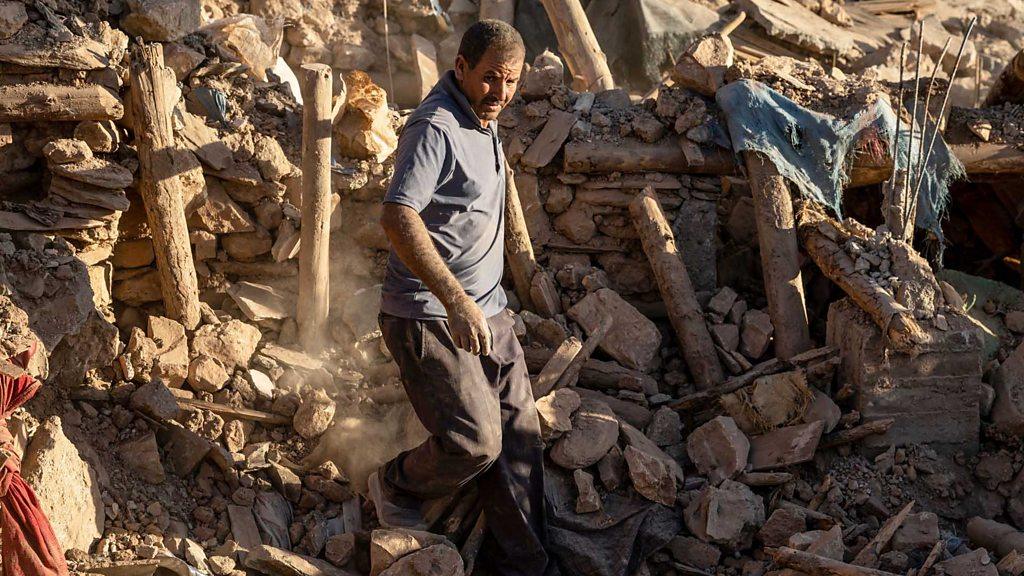
- Published9 September 2023
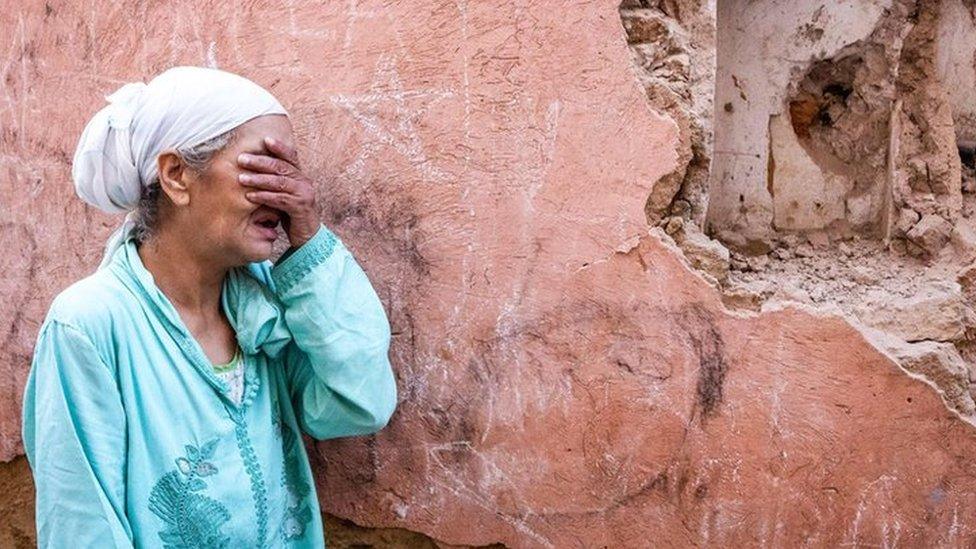
- Published9 September 2023
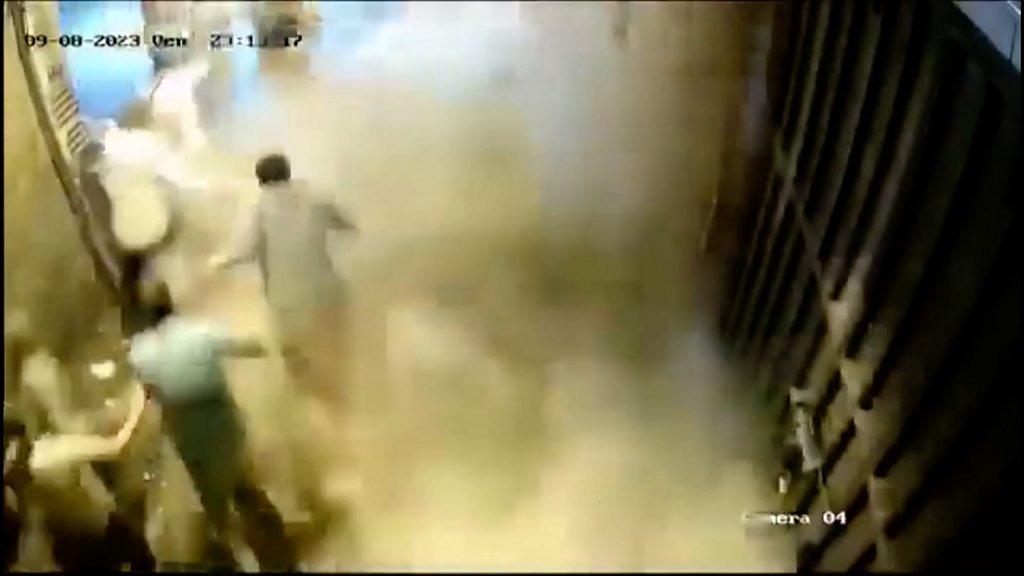
- Published9 September 2023
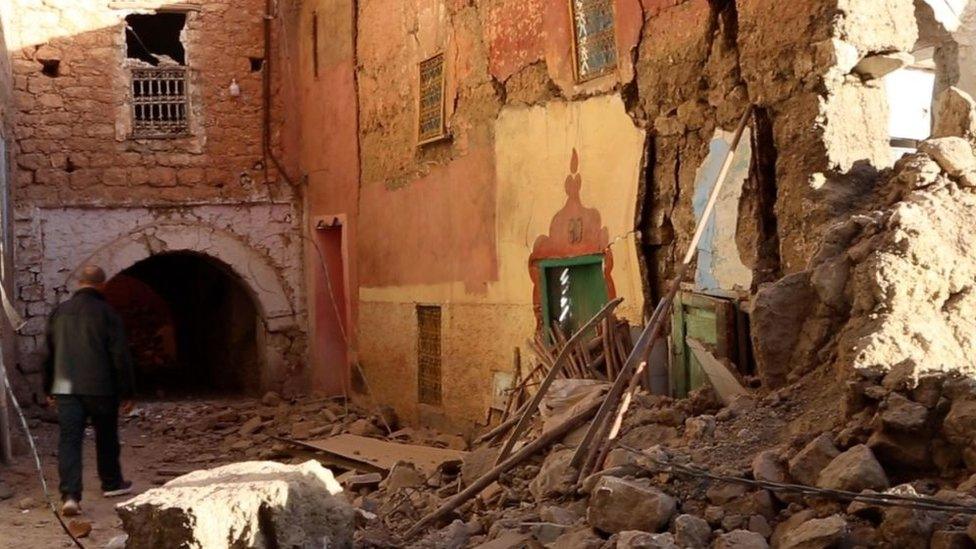
- Published9 September 2023
